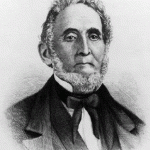There is only one precedent in history of a pontiff willingly walking away from his job. In 1294, Pope Celestine V was elected by the College of Cardinals, ruled for fifteen disastrous weeks, and then abdicated before Christmas. No pope has quit, since, and none has taken the name Celestine.
You may remember a 20th-century pope who was rumored to be considering resignation for years as his health failed before our eyes. Pope John Paul II suffered famously and publicly from Parkinson's disease. The Italian press periodically reported that his health was hanging by a thread, or that he was enduring near suffocation, or couldn't breathe fully on his own. On one occasion, the Vatican's secretary of state, Cardinal Angelo Sodano, responded to a reporter's question about whether or not JPII would ever consider resigning. Sodano made headlines around the world when he responded: "We must have faith in the Pope. He knows what to do." He seemed to leave the door open to the possibility.
Millions were calling JPII a saint before his death. They were calling Celestine V a saint, too, back in 1294. In the late 20th-century, saintly qualities are expected of a pontiff, but similar traits did not fit the job description of a late medieval pope. In the Sermon on the Mount, Jesus praises virtues such as meekness, compassion, love. To be a saint as head of the Holy See in 1294 exhibiting these in abundance was the ipso facto equivalent of being a fool.
Celestine V spent most of his time in private prayer instead of engaging with his responsibilities as a world leader, commander of armies, and keeper of the keys to vast treasuries. John Paul II was also accused of spending too little time focusing on administrative issues. There were many in the curia of both pontiffs who thought these men were dangerously negligent leaders. Looking back, JPII's biographer, George Weigel, characterized what happened during his papacy by saying, "[H]e was reinventing the papacy as an office of evangelical witness rather than bureaucratic management."
There are many differences between the two papacies, and the successes of John Paul II are as numerous as the failures of Celestine V. But perhaps the most profound difference of all is that Celestine lived and ruled long before the digital and television age. There was no positive effect of a profound personal, spiritual witness in a pope in 1294 that could compare the effect today, when millions of faithful are able to witness the images of piety in their Holy Father every day, live, streaming on the internet or broadcast on television. An angelic pope had no hope of saving the world through piety alone 700 years ago.
Would our current Pope Benedict XVI ever resign? People have wondered for years. Incidents such as the 2006 Regensburg University speech, when he referred to Islam as "evil and inhuman," and in 2010 as he failed to manage another growing sexual abuse scandal, have led some to say that a lack of administrative and diplomatic skills—the same sort of ineptitude shown by Celestine V—might prompt it. Nearly two years ago, on a Sunday in April 2010, a parish priest in Massachusetts became the first within the Catholic Church to suggest that Benedict XVI should quit. The story ran on the front page of The Boston Globe, with Rev. James J. Scahill of East Longmeadow, Massachusetts telling how he received a standing ovation at mass that day when he suggested it.
In more recent months, it has become clear that Pope Benedict is willing to engage with the problems the Church faces. Yet, I wonder if he has ever considered walking away. He has never been, and will never be, a leader like Celestine V. Yet, would it surprise you to know that Benedict XVI has chosen to align his papacy with the memory of this singular pope from the past? While visiting L'Aquila, Italy after the major earthquake in spring 2009, he quixotically removed the pallium from around his shoulders and laid it on Celestine's tomb. He never explained what he meant by this to the puzzled media nearby.
The next time that trouble rocks the Vatican, and it will, it always does, I wonder if Pope Benedict XVI will think back to that singular example in history that would offer him the precedent to step down.
3/8/2012 5:00:00 AM




